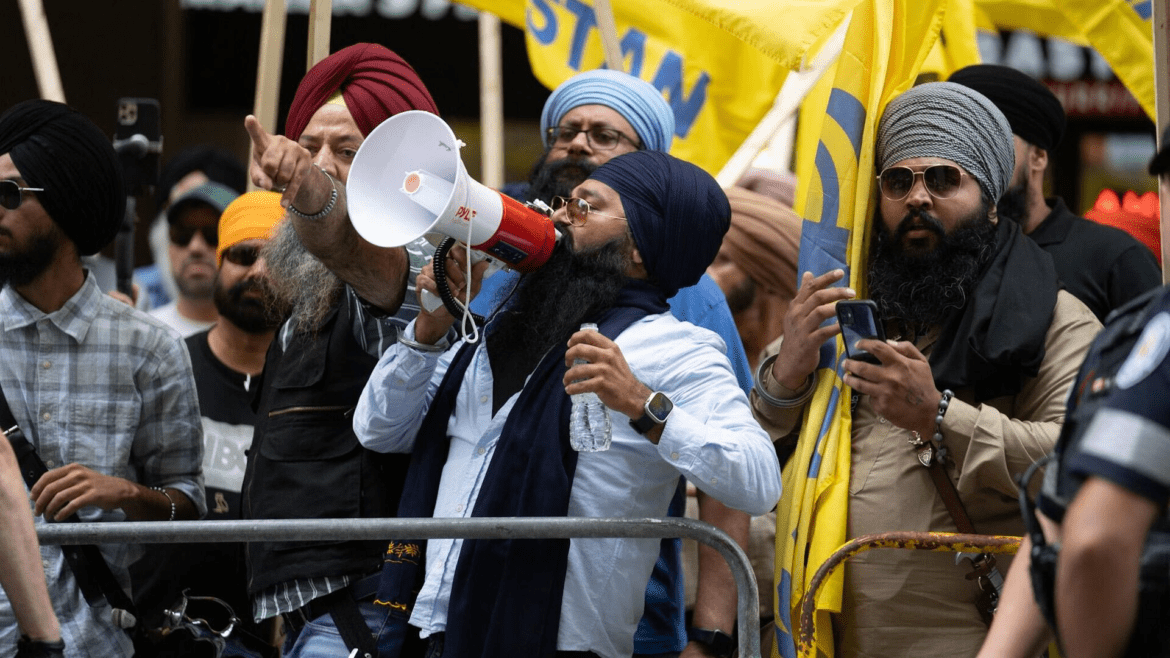AI Generated Summary
- This discrepancy in perspectives between the diaspora and the local Punjabis is a study in the evolution of cultural identities and the influence of historical contexts.
- The call for Khalistan, a theocratic Sikh state, continues to echo within just a handful of fringe elements of the Sikh diaspora in countries like Canada, the United States, and the United Kingdom.
- The ongoing controversy and the resultant suspension of trade talks and restrictions on human resource exchanges not only deepen the crisis between the two nations but also illustrate the dangers of letting a fringe movement dictate the political discourse.
The call for Khalistan, a theocratic Sikh state, continues to echo within just a handful of fringe elements of the Sikh diaspora in countries like Canada, the United States, and the United Kingdom. However, this separatist sentiment finds no resonance in the Indian state of Punjab itself. This discrepancy in perspectives between the diaspora and the local Punjabis is a study in the evolution of cultural identities and the influence of historical contexts.
The concept of three distinct Punjabs—Diaspora Punjab, Indian Punjab, and Pakistan Punjab—helps explain the divergent views on Khalistan. In the diaspora, particularly in places like Canada, where political entities such as the New Democratic Party (NDP) are perceived to be sympathetic to the Khalistan cause, the radical narrative finds a fertile ground. This narrative is primarily sustained by memories of tragic events from the 1980s, such as Operation Blue Star, which are used to justify a politics of vengeance. The younger generation in these diaspora communities has been socialized into a political culture that regenerates this sense of historical injustice, continuously simmering beneath the surface.
Conversely, in Indian Punjab, the narrative has significantly transformed. Operation Blue Star, rather than becoming a rallying cry for separation, has evolved into a symbol of the need for religious respect and communal harmony. Over the past four decades, the Sikh community in Punjab has largely moved beyond the immediate pain of the 1980s. This shift is reflected in the broader consensus around justice for the victims of the 1984 violence, transcending the boundaries of religion to foster a collective Punjabi identity.
This identity in Indian Punjab is robustly secular, shared by Sikhs and Hindus alike, who together celebrate a common language and cultural heritage. Such inclusivity is underscored by statistics like those from the 1991 census, which show a significant number of Punjabi Hindus identifying Punjabi as their mother tongue, and political affirmations like the Moga declaration that emphasize Punjabiyat—a secular, inclusive Punjabi identity.
In stark contrast, the Sikh diaspora in countries like Canada often sees a sharper delineation. This separation is perhaps exacerbated by the political environment in these countries, which grants space to vocal Khalistan proponents who advocate for a separatist agenda under the guise of avenging historical grievances. This situation is compounded by incidents like the killing of Hardeep Singh Nijjar, which reignite and internationalize the Khalistan issue, leading to diplomatic strains between Canada and India.
The ongoing controversy and the resultant suspension of trade talks and restrictions on human resource exchanges not only deepen the crisis between the two nations but also illustrate the dangers of letting a fringe movement dictate the political discourse. This approach risks reinforcing socially divisive tendencies and escalating tensions among religious groups in the diaspora.
The real challenge, therefore, is not merely confronting these separatist demands but also addressing the underlying issues of justice and integration. Indian Punjab’s experience shows that healing and reconciliation are possible through a focus on shared cultural values and the delegitimization of violence. It is crucial for the Sikh diaspora to engage in a similar introspection, moving towards closure and rejecting the divisive politics of the past.
The demand for Khalistan finds no echo in Punjab today because the region has turned a painful historical chapter into a stepping stone towards a more integrated and harmonious future. It is a lesson that perhaps the diaspora could learn from, steering the narrative towards peace and communal unity rather than segregation and strife.
The opinions expressed in this article are those of the author. They do not purport to reflect the opinions or views of Khalsa Vox or its members.




